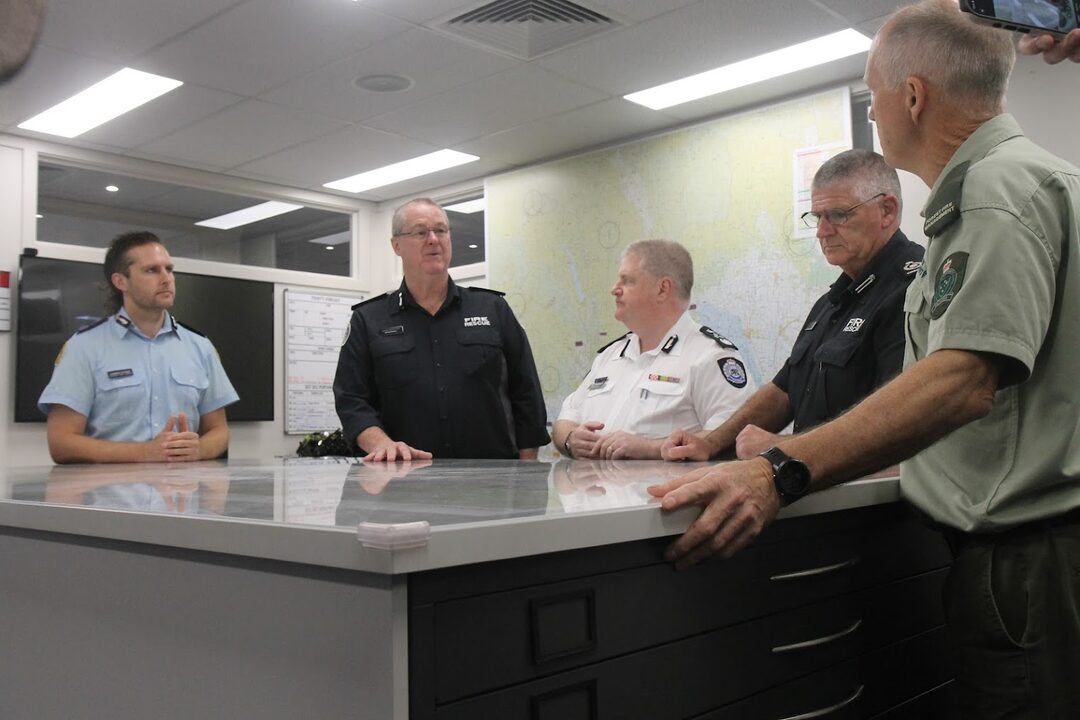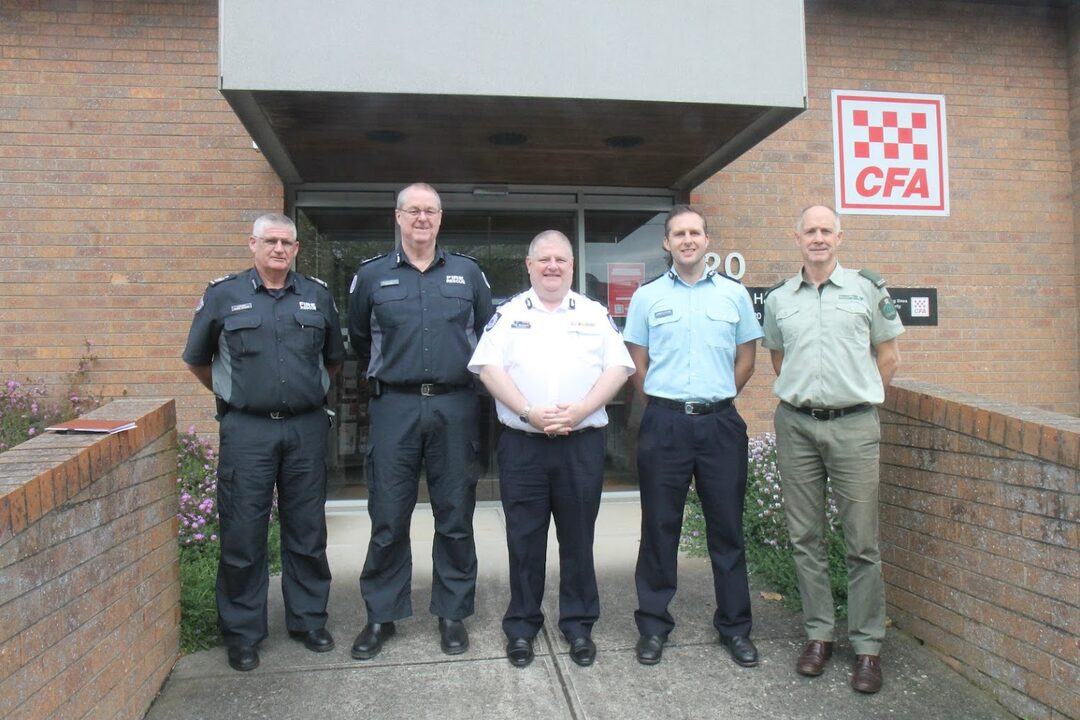By KATRINA BRANDON
LOCKED and loaded, state fire services are ready to go for the next fire season.
Last month, at a pre-season briefing at Morwell’s Country Fire Authority (CFA) District 27 Headquarters, emergency service agencies gathered to discuss the possibilities for the upcoming season.
“We’re here today with all our emergency service agencies and our local government authorities, and our emergency broadcasters to get ready for the higher risk weather season,” Emergency Management Commissioner Tim Wiebusch told the Express.
“We know across Victoria that we’ve seen 18 months of very dry conditions in most parts of the state, with the exception of East Gippsland. And so today is about getting ready as agencies for what we might face for this coming season, not just here in Gippsland, but right across the state.”
As we head into the summer season, Mr Wiebusch said that they could see a mixture of emergencies across Gippsland.
In Gippsland, Mr Wiebusch said that there is a possibility of increased fire activity in the South and West Gippsland areas. They have already seen multiple fires break out in recent weeks, including bushfires in Toongabbie and Coongulla on September 15, as well as two additional fires: one north of Licola and a 2.5-hectare fire burning 6km north of Clifton Creek.
While none of those fires were a threat to neighbouring communities, CFA’s Assistant Chief Fire Officer Brian Russel warned that locals should prepare themselves for the season ahead.
“The emergency services, the fire services, have been working hard over the last couple of months getting ready for the fire season that is ahead, and we’re now calling on the community to do the same,” he said.
“The conditions throughout Gippsland have been dry. South Gippsland, in particular, has been very dry over the winter period and into spring. As we head into spring, however, we’re starting to see some rain coming through Gippsland.
“That rain will do some benefit for us, but it’s not going to make a big difference. We just need to be aware of that. We’re calling on the community to get organised and get started preparing their properties, just as the fire services have been doing over the last couple of months.”
Mr Wiebusch also stated that the season could go the other way.
“We’ve already seen some fires down here in recent weeks, or we could also see the increased risk of heavy rainfall,” he said.
“The Bureau is forecasting for November and December that we could see above-average rainfall for parts of Gippsland. So that means the risk of riverine and flash flooding is also on the list. But as we come into the summer months, we know the risk of thunderstorm asthma is also with us.”
Mr Russel and Wiebusch were also joined by David Nugent, Acting Director of Forest and Fire Programs from Forest Fire Management Victoria (FFMV); Cameron Rothnie, VICSES (Victorian State Emergency Services); and Shane Mynard, FRV (Fire Rescue Victoria).

Mr Nugent said that emergency services such as the FFMV have been working towards being ready to manage what is to come over the next few months.
In preparation for the season, he stated that FFMV has a planned burn program, designed to mitigate risks to communities. According to Mr Nugent, over the last 12 months, they’ve been able to deliver a program that treated over 109,000 hectares. This year, as the early parts of the season progressed, they also treated another 600 hectares across the state.
“We will continue to take every opportunity as we head into the high-risk season, particularly into the summer season, to undertake our risk reduction works around communities and in the forest areas,” he told the Express.
“We need to make sure that people understand the conditions when they head out into the forest, particularly those people who head off to go camping and enjoy the opportunities that our forest provides for camping and the campfires that you have.
“Please never leave the campfire unattended. Ensure that when you leave your campsite, your fire is completely out. We know it’s a cause of bushfires when people leave unattended campfires.”
As the fire season approaches, the crew emphasised that, as part of their emergency planning, locals should download the VicEmergency App to stay informed about potential risks in their immediate vicinity.
According to VICSES, over the past five years, VICSES units in Gippsland have responded to thousands of storm-related Requests for Assistance (RFAs), with numbers climbing steadily across key towns. The Warragul Unit alone has responded to 3,044 RFAs, followed closely by Morwell (2,778), Leongatha (1,971), and Moe (1,233). These figures reflect the growing impact of severe weather across the region, from flash flooding and fallen trees to property damage and power outages.
In the most recent storm season (2024/25), Warragul recorded a record 878 RFAs, while Morwell responded to 692, and Moe to 424. These numbers are not just statistics, they represent real emergencies affecting homes, families, and communities across Gippsland.
More storms are putting Gippsland communities at greater risk, which means it’s important to prepare early and stay involved locally.
With above-average rainfall forecast across eastern Victoria, the risk of damaging winds, flash flooding, and severe thunderstorms remains high. VICSES encourages residents in towns like Warragul, Morwell, Moe, Leongatha, and Bairnsdale to visit ses.vic.gov.au for practical advice and safety tips.
For more information on how to prepare for the fire season, go to https://www.emergency.vic.gov.au/prepare/#being-prepared/looking-after-your-wellbeing












